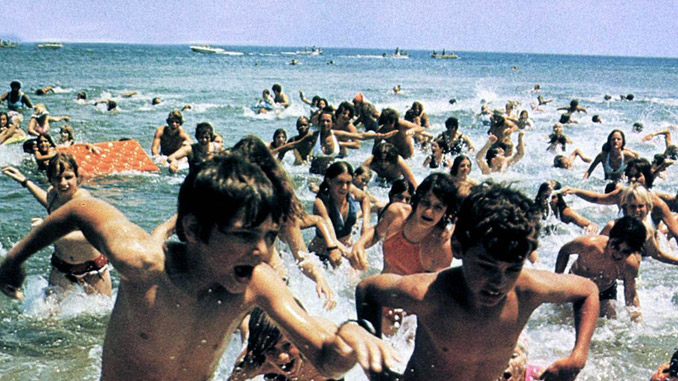
With summer in full swing and, thanks to climate change, at least another five months of warm weather ahead of us, the denizens of this fair hemisphere still have time to pack up their beach bags and head toward the closest lakes and seasides—and who can blame them? Nothing feels better than jumping into a nice, cool lake on a hot summer’s day. But who can honestly say that they’ve never shown a little bit of hesitation before getting into the water?
Water, as a naturally occurring element, has commanded both respect and fear from human beings since the beginning of civilization. Human beings owe their very lives to water, and yet that which sustains life can just as easily take it away. So what is it about water that is so foreboding? From early tales of sea monsters to modern day cinema, there has always been a strange fascination with making the oceans and lakes of our planet as frightening as possible in the imaginations of those who traverse them. Rarely are the tales lighthearted when bodies of water are concerned; instead we’re dealt cautionary tales and stories of terror, be they upon the open ocean, within the murky lakes, or surrounding the rapid rivers of this planet. Perhaps there is a reason behind why water is used as a medium for so many horror stories and films.
Some of the earliest stories ever written are those about sea monsters and other things that lurk in the depths of the ocean. Sailors would return to port with yarns about encounters with giant squids and monsters that would burst from the depths and consume ships whole. Even in the modern day, reports of monsters in Loch Ness and Lake Champlain are delivered to the public within the grainiest and shakiest of video recordings. Most of these accounts can be written off as an unhealthy mixture of superstition, dehydration, or alcohol, but there are still some accounts that science is unable to explain. In recent years, ships have been finding giant squids by the literal boatload, making debunkers eat their words and raising questions about what else may be down there. This is, first and foremost, what makes the murky depths of natural bodies of water so frightening in the minds of humans—the fact that we can never be absolutely sure of what’s in the water along with us.
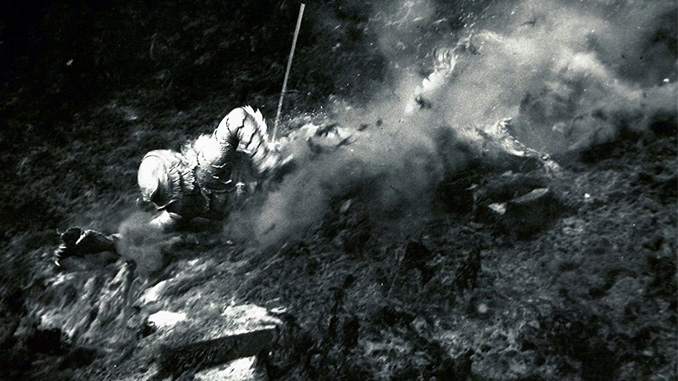
Film has capitalized on this fear of creatures lurking in the depths for decades with such movies as Creature from the Black Lagoon, Piranha and, of course, the almighty Jaws. While some of these films deal with monsters of the imagination, a lot of them showcase more familiar creatures—sharks, for instance. The list of horror movies about sharks is too long for one article already, and recent releases like The Meg prove that the fascination is still going strong. Why the obsession with monsters, either real or imaginary, when it comes to water? The answer is simply that humans are out of their element when they are in the water. When boating, swimming, fishing, etc., we are guests in the habitat of creatures that are much more familiar with the water than we are… And we are very well aware of that fact. This is a fear that is at the forefront of every person’s mind when they first set foot in the water. It is what makes us wonder “What exactly is in here with me right now?” This fear is what forms the basis of every movie that deals with marine creatures preying upon humans: not knowing what lurks just out of sight while in the water.
Of course, not every story of film deals with some marine creature preying upon humans. As any sailor can tell you, the sea itself is even more deadly than that which lives within it. Venturing out onto the waves will really put into perspective just how small our species is compared to the vastness that is the ocean, and there has been many an unfortunate soul who has underestimated the power that the sea possesses. Shipwrecks of foolhardy captains litter the ocean floor, people have fallen overboard in the middle of a storm to never be seen or heard from again and waves as tall as buildings have overtaken any ship foolish enough to sail into a storm.
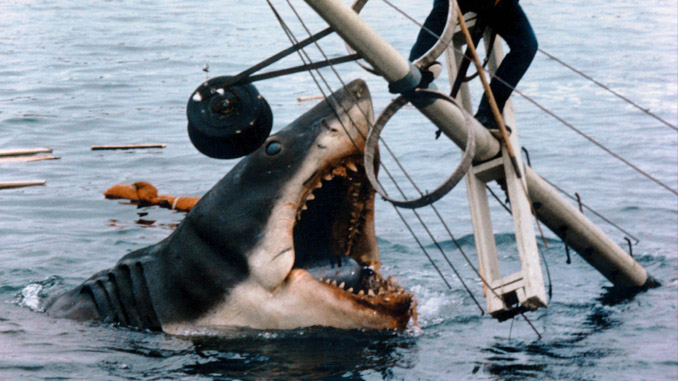
There are scores of films that address the dangers of venturing into the sea, and not all of them are horror movies. A few films that showcase the battle between humans and water are The Poseidon Adventure, The Perfect Storm, and Titanic, and they all address the same root fear which everybody on this planet has: drowning. Losing one’s life to drowning has terrified us since we first started to put boats on the water. The fact that we are at the mercy of the waves has sent shockwaves through civilization since the first humans decided to see what lies beyond the watery horizon. But, despite all of the technological advances that we’ve made in marine travel, the fact remains that when it comes to us versus water, water will win most of time. In the middle of the ocean, there is no escape and that fact has been shoved down our throats in every film that sees water as its main antagonist.
Up until now, all of the horrifying aspects of water have dealt with the natural world. However, there are still supernatural elements surrounding water that have been in play for hundreds of years. Seafarers have told tales of ghost ships and haunted shoals for years. Real life incidents such as that of the Marie Celeste—a ship that was found adrift with nobody on board and no explanation for their disappearance—linger in the back of people’s minds when they set sail on the waves. Scores of films have been made dealing with the supernatural ocean: Ghost Ship, Creature from the Haunted Sea—even the Pirates of the Caribbean movies address the fact that ghosts are just as capable of existing at sea as they are on land. Perhaps the explanation for this fear is explained by a healthy fear of the unknown. When alone in the middle of any body of water, we don’t know who or what is out there with us, leaving our minds to wander and invent fears that wouldn’t otherwise be a factor.
Most of what we fear about water is easily explained by the fact that we are out of our element and at the mercy of a force that will always be more powerful than ourselves. A lack of control over our surroundings is a very scary thing for most people to accept and leads the mind to make up fears where they might not exist otherwise. In short, approaching water with a healthy amount of fear is much better than running headlong in thinking that you are the master of a force that you can’t fully comprehend.
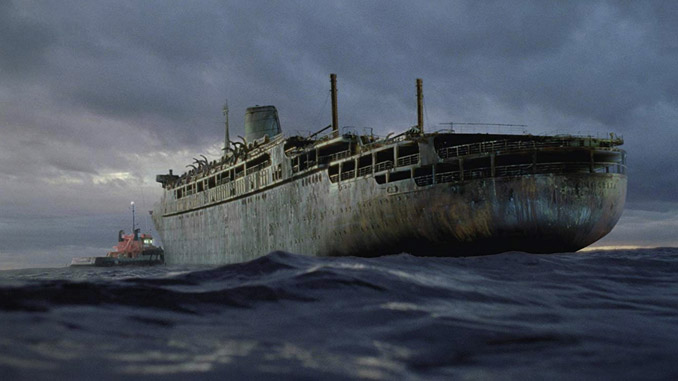

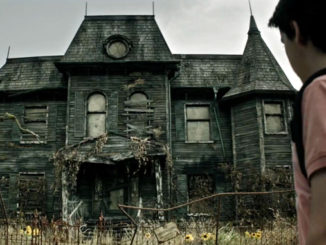
Be the first to comment